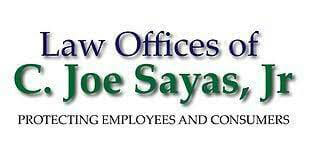What is ‘interactive process’ in worker requests for accommodation?

Q: I work for a mid-size company in Los Angeles. I was recently diagnosed with a serious illness that will require surgery and several weeks of recovery. I’m worried about my job and someone suggested I should let my employer know so the “interactive process” can begin. What is the interactive process and what should I expect from this?
A: In California, employers with 5 or more employees are generally legally required to engage in a “good faith interactive process” when an employee requests an accommodation due to a disability, medical condition, or pregnancy. The interactive process is the way in which the employer determines whether and what kind of reasonable accommodation can be made to an employee.
Reasonable accommodation is a change to an employee’s job tasks, or the way the job is done, or the work environment, which would allow the disabled employee to perform the essential functions of their job. If you need to go on medical leave due to a disability or pregnancy, the employer’s granting you the leave constitutes reasonable accommodation.
In order for the employer to determine whether or not the employee needs reasonable accommodation, or what kind of accommodation, the employer and the employer must first engage in a good faith interactive process.
The California Fair Employment and Housing Act (FEHA) and Americans with Disabilities Act (ADA) are state and federal laws that prohibit discrimination based on disability and also require an employer to engage in an ongoing, good faith interactive process with an employee to determine whether reasonable accommodation can be made to an employee with a known disability.
The employer’s duty to engage in good faith interactive process may be triggered by any of the following situations:
- Request by the disabled employee (oral or written)
- Employee notifies employer of restriction or limitations
- Request by the employee’s representative (e.g., medical provider or family member) on behalf of the employee
- Employee has missed several days of work due to illness or injury
- Employee’s manager or supervisor notices deficits in employee’s job performance
During the interactive process, the employee may be asked provide documents requested by the employer to support their request for reasonable accommodation (for example, a medical certification outlining the employee’s work restrictions). The employer may ask the employee directly what kind of accommodation they needed for them to do their job. During the interactive process, both the employer and employer must participate in a good faith dialogue to explore all possible accommodations.
Engaging in interactive process keeps the lines of communications between employer and employee open in order to facilitate the disabled employee’s return to work. Consider the following case:
Margarita Ramirez worked for World Oil Corp for 16 years. She started as a filing clerk and was eventually promoted to Collections Specialist. In 2016, Ramirez inured her right wrist, elbow and shoulder. Her work restrictions were accommodated throughout her years of employment. However, despite these accommodations, Ramirez’s condition worsened and she underwent a right elbow surgery and took a medical leave of absence. In December 2018, Ramirez notified her employer that she was released to return to work with several restrictions. However, the employer decided to place her on a leave of absence as an accommodation, instead of engaging in interactive process and returning her to work. Ramirez resigned from her position in June 2020.
The case went to trial. The jury found in favor of Ramirez and awarded her compensatory damages of $137,795 in past economic damages, $196,919 in future economic damages, $1.3 million in past non-economic damages, and $1.3 million in future non-economic damages. The jury also found by clear and convincing evidence that the employer acted with malice, oppression, and fraud and awarded punitive damages in the amount of $3,000,000.
The Law Offices of C. Joe Sayas, Jr. welcomes inquiries about this topic. All inquiries are confidential and at no-cost. You can contact the office at (818) 291-0088 or visit www.joesayaslaw.com. [For more than 25 years, C. Joe Sayas, Jr., Esq. successfully recovered wages and other monetary damages for thousands of employees and consumers. He was named Top Labor & Employment Attorney in California by the Daily Journal, consistently selected as Super Lawyerby the Los Angeles Magazine, and is a past Presidential Awardee for Outstanding Filipino Overseas.]

